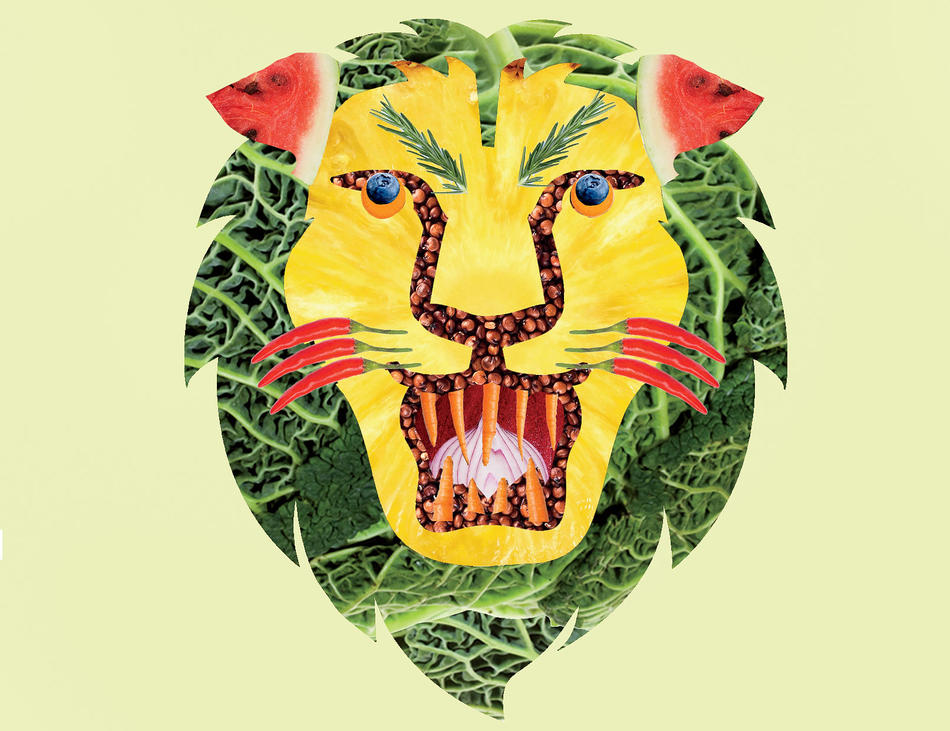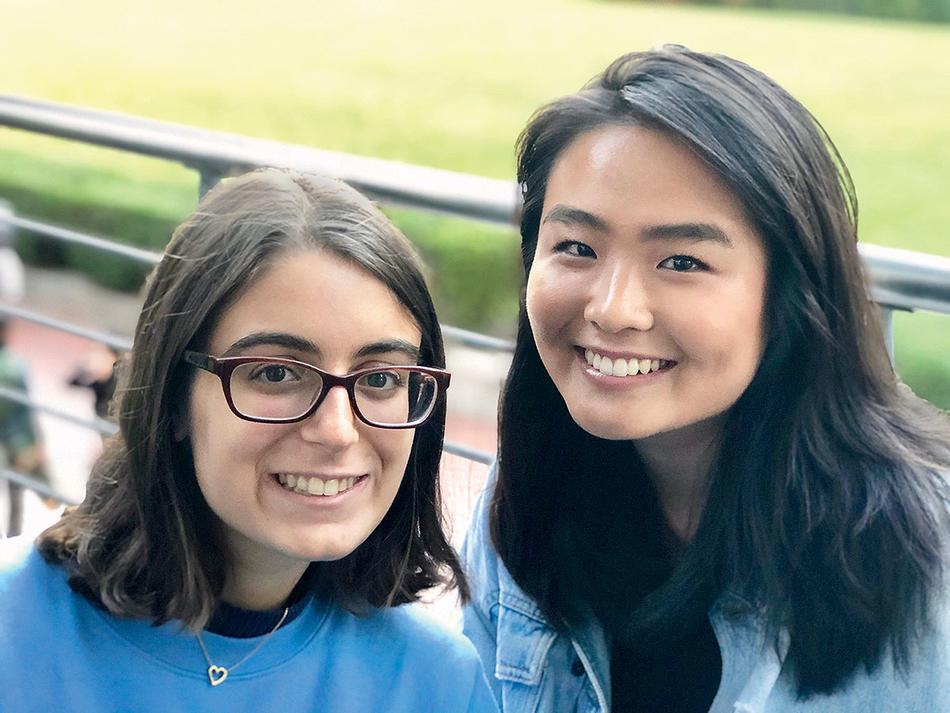Free food is probably the best way to get a student’s attention, and Zoe Elison’s bait was brownies. As president of the Columbia Vegan Society, Elison, a sophomore, had baked enough of the dairy-free, egg-free treats to withstand the crush of Activities Day, and after four hours behind a brownie-stacked table, Elison saw more than two hundred people — vegans, vegetarians, and the vegan-curious — sign her e-mail list. That was a record, and a week later, as the club’s first meeting overflowed with dozens of students, it was clear that food wasn’t the only attraction.
Energized by the wave of world events that rolled in with the academic year — the burning of the Amazon rainforest for cattle ranching, a UN climate report calling on humans to reduce meat consumption, Burger King’s debut of a plant-based Whopper, and a New York Times column, written by an omnivore, titled “Stop Mocking Vegans” (“They’re right about ethics and the environment”) — people were eager to get together, share stories, ask questions, and debate.
Elison, the moderator, wanted to know: what sort of challenging comments do vegans hear? “How do you get protein?” a woman in a Columbia sweatshirt volunteered, to knowing chuckles. “When you’re vegan,” she said, “everyone wants to be your dietitian.” A Barnard first-year suggested comic Ellen DeGeneres’s rebuttal: “What do you care where I get my protein from? Where do you get your riboflavin?” Students from Italy, Romania, and Ukraine described the incomprehension of folks back home, who viewed a plant-based diet as an affront to tradition. Students from Nebraska, Mississippi, and Wisconsin could relate.
But in New York, where veganism is well-established, Columbia students have plenty of options, on campus and off. “Columbia and Barnard have stepped it up,” said Barnard sophomore Sorah Park, who has written a downloadable guidebook to dining halls and area eateries called Your Guide to Vegan Bites at Barnumbia. Park loves the curry with tofu at the Diana Center, the no-cheese bruschetta pizza at Ferris, and the vegan pho she once had at John Jay. “John Jay’s vegan station is pretty good,” said Elison. “They have a big salad bar with lots of grains and vegetables. Non-vegans eat at the vegan station all the time — they have Beyond Sausage, and people like the plant-based stuff more than the meat.”
At the meeting, students loaded up on brownies and oat-milk ice cream using bowls and spoons brought from home (Elison, who studies computer science and sustainable engineering, tries to avoid disposables). There would be a catered vegan-cheese night later in the semester — an event that stirred great anticipation, since for many aspiring vegans, cheese is the hardest habit to kick. While vegan cheeses don’t contain the milk protein casein, which produces opiate-like effects, cheesemakers using cashews, almonds, coconut, and potatoes are concocting equally addictive alternatives light years beyond the soy cheddar of yore. One student mentioned the brand Miyoko’s, which drew murmurs of approval. “I’m picky with my cheese,” said the Wisconsinite, “but that one slaps.”
Elison solicited ideas for future discussion topics. “What about dating a meat-eater?” one student said. “Deal-breaker,” said another. The Nebraskan said, “Short-term, yes. Long-term, no.” A woman stirring her melted ice cream announced that condoms aren’t vegan, since they are processed with casein to make them smoother. Interesting news, but someone said that vegan condoms exist. No one could offer a product review. How about vaccines? “I don’t mess around when it comes to medicine,” said the Nebraskan, standing firmly on the side of the flu shot. Most everyone stood with him. And hunting? That one pitted a sustainability vegan (“I wouldn’t do it personally, but if hunting is done sustainably and the meat is used to feed people, I have no problem with it”) against an anti-cruelty vegan (“Why kill an animal if you don’t need to?”). This was big-tent veganism.
The brownies dwindled, and the meeting adjourned. The next day, the students would fuel up at the vegan-friendly stations in John Jay and Ferris or at the local venues highlighted in Sorah Park’s guidebook. The zeitgeist, they knew, was at their backs. As Park, plant-based since age eighteen and a varsity swimmer in high school, put it, “If you want to be vegan, now is the time.”
This article appears in the Winter 2019-20 print edition of Columbia Magazine with the title "When Lions Become Vegans."




